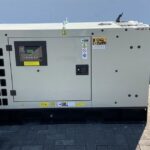Top Mistakes People Make When Using a Gas Cylinder
Description
Gas cylinders are a vital part of many homes and businesses around the world. Whether they’re used for cooking, heating, or industrial applications, gas cylinders make our daily lives easier and more efficient. However, despite their convenience, they can also pose serious safety risks if not handled properly. Accidents caused by gas cylinder are often the result of avoidable mistakes. Understanding these errors and learning how to avoid them can make all the difference between safe usage and dangerous outcomes.
In this article, we’ll explore the top mistakes people make when using a gas cylinder, why they happen, and how to prevent them. Whether you’re a homeowner, restaurant owner, or technician, these tips will help you ensure that your gas cylinder is always used safely and efficiently.
1. Ignoring the Importance of Proper Installation
One of the most common mistakes people make with gas cylinders is improper installation. A gas cylinder must be connected correctly to ensure safe and consistent gas flow. Many users attempt to install the cylinder themselves without understanding the correct procedure or without using the proper tools. This can result in gas leaks or poor performance of the connected appliance.
Why it’s a problem:
A poorly fitted regulator or damaged hose can cause leaks that are often unnoticed until the smell of gas becomes strong—or worse, until a spark ignites the leaking gas.
How to avoid it:
Always ensure that your gas cylinder is installed by a qualified technician. If you must replace or connect it yourself, follow the manufacturer’s instructions carefully. Check that the regulator fits tightly, and never force any component into place.
2. Failing to Check for Gas Leaks
Another serious mistake is not checking for gas leaks regularly. Leaks can occur due to wear and tear on the hose, loose connections, or damaged valves. Some people assume that because their cylinder “looks fine,” it must be safe. Unfortunately, leaks are often invisible but highly dangerous.
Why it’s a problem:
Even a small gas leak can fill an enclosed area with flammable gas. Any ignition source—like a lighter, spark, or electrical switch—can cause a fire or explosion.
How to avoid it:
Perform a simple soap-water test every time you change or reconnect a gas cylinder. Mix water with a little dish soap and apply it to the connection points using a sponge or brush. If bubbles form, there’s a leak that must be fixed before using the cylinder. Never use a flame to check for leaks.
3. Placing the Gas Cylinder in the Wrong Location
Gas cylinders should always be placed in well-ventilated areas. Yet, many people keep their cylinders in confined or poorly ventilated spaces, such as under kitchen counters or in storage rooms. This is one of the most dangerous mistakes because if gas escapes, it can quickly accumulate and cause suffocation or an explosion.
Why it’s a problem:
LPG (liquefied petroleum gas) is heavier than air. When it leaks, it settles at the bottom of a room instead of dispersing into the air. In a closed space, this creates an invisible but deadly gas trap.
How to avoid it:
Place your gas cylinder in an open, well-ventilated area, preferably outside or in a space with proper airflow. Avoid keeping it near heat sources, electrical appliances, or open flames. Make sure the cylinder stands upright on a flat, stable surface.
4. Using Damaged or Expired Cylinders
Every gas cylinder has a manufacture date and expiry date stamped on its body. Unfortunately, many users ignore these markings and continue using old or damaged cylinders. This is a major safety risk.
Why it’s a problem:
Over time, the cylinder material weakens due to corrosion, dents, or exposure to weather. Using an expired or damaged gas cylinder increases the risk of leaks, ruptures, or even explosions.
How to avoid it:
Check the manufacturing and expiry dates before purchasing or refilling a cylinder. If your cylinder looks rusty, dented, or has visible wear, return it to the supplier immediately. Never attempt to repair a damaged cylinder yourself.
5. Using the Wrong Regulator or Hose
A gas cylinder must always be used with a compatible regulator and hose. However, many people use mismatched parts—either to save money or because they’re unaware of compatibility issues.
Why it’s a problem:
Using the wrong regulator can cause uneven gas flow or leaks. Similarly, cheap or low-quality hoses can crack or burst when exposed to high pressure or heat.
How to avoid it:
Use only approved accessories recommended by your gas supplier or manufacturer. Replace the rubber hose every two years or sooner if it shows signs of wear. Always choose regulators certified for your specific type of gas cylinder.
6. Keeping the Cylinder Too Close to Heat Sources
Gas cylinders must always be kept away from stoves, ovens, or direct sunlight. However, many kitchens have the cylinder sitting right next to the cooking area for convenience. This may seem harmless, but it’s one of the biggest fire hazards.
Why it’s a problem:
When exposed to high heat, the pressure inside the gas cylinder increases, which could lead to a rupture or explosion.
How to avoid it:
Maintain a safe distance—at least one meter—between your gas cylinder and any heat source. If possible, place the cylinder in a separate cabinet or outdoor area connected by a long hose.
7. Forgetting Regular Maintenance and Inspection
Many users think that once a gas cylinder is installed, it doesn’t need further attention. But regular maintenance and inspection are crucial for long-term safety.
Why it’s a problem:
Over time, parts like hoses, valves, and regulators can deteriorate. Dust, grease, or insects can also block the nozzle or valve. Without periodic inspection, small issues can grow into major hazards.
How to avoid it:
Schedule a professional inspection at least once a year. Clean the area around the cylinder and make sure the valve and connections are free from debris. Replace accessories as recommended.
8. Mishandling During Transportation
Transporting a gas cylinder may seem simple, but improper handling can cause serious damage or leaks. Some people roll the cylinder on its side or transport it in an enclosed vehicle without securing it properly.
Why it’s a problem:
Rough handling can damage the valve or regulator. If the cylinder tips over or leaks inside a vehicle, it can cause suffocation or explosion.
How to avoid it:
Always transport gas cylinders upright and secure them to prevent movement. Keep the vehicle windows open for ventilation, and never leave a gas cylinder inside a closed car.
9. Leaving the Valve Open After Use
Another easily avoidable mistake is forgetting to turn off the valve after using the gas cylinder. Some users assume that turning off the appliance is enough, but the gas can still escape from the hose or connection if the valve remains open.
Why it’s a problem:
Leaving the valve open can lead to gas buildup, especially if there’s a small leak somewhere in the system.
How to avoid it:
Make it a habit to close the valve tightly every time you finish using the gas. This small step can prevent leaks, save gas, and extend the life of your equipment.
10. Using Gas Cylinders Indoors Without Ventilation
Sometimes, people use gas cylinders for indoor heating or cooking in small, closed spaces such as tents or workshops. While convenient, this can be extremely dangerous if there is no proper ventilation.
Why it’s a problem:
Incomplete combustion of gas produces carbon monoxide, a deadly, odorless gas. Without ventilation, carbon monoxide can quickly accumulate and cause poisoning.
How to avoid it:
Always ensure that there’s proper airflow in any area where a gas cylinder is used. Install carbon monoxide detectors if you regularly use gas indoors.
11. Ignoring the Smell of Gas
Most people know that LPG has a strong odor due to an added chemical that helps detect leaks. Unfortunately, some people ignore this smell or assume it’s just residue from cooking or cleaning.
Why it’s a problem:
Ignoring the smell of gas is one of the most dangerous mistakes you can make. Even a faint odor can indicate a serious leak.
How to avoid it:
If you smell gas, do not ignite anything, turn on lights, or use electrical switches. Immediately turn off the valve, open all windows and doors, and move to a safe distance. Call your gas supplier or emergency services right away.
12. Using the Cylinder for Unapproved Applications
Gas cylinders are designed for specific uses, such as cooking or heating. However, some users connect them to unapproved devices or modify them to serve other purposes.
Why it’s a problem:
Modifying the cylinder or using it for something other than its intended purpose can cause pressure imbalance, leaks, or explosions.
How to avoid it:
Use your gas cylinder only for approved appliances. Never attempt to alter or repair the cylinder or its valve yourself.
13. Not Knowing Emergency Procedures
Even when all precautions are taken, emergencies can still occur. Unfortunately, many people do not know what to do if a gas cylinder catches fire or starts leaking.
Why it’s a problem:
Panic and improper handling can make the situation worse, leading to injuries or property damage.
How to avoid it:
Educate yourself and your family about gas safety protocols. Keep a fire extinguisher nearby and know how to use it. In the event of a gas leak, do not attempt to move the cylinder; instead, shut off the supply and evacuate the area immediately.
Conclusion
Using a gas cylinder safely requires awareness, responsibility, and routine maintenance. Most accidents happen not because the equipment is faulty, but because of human error—mistakes that can easily be avoided with proper care and attention. From ensuring correct installation and regular leak checks to keeping cylinders in ventilated areas and away from heat, each small precaution contributes to a much safer environment.
Always remember: Safety comes first. Treat your gas cylinder with respect, follow the manufacturer’s guidelines, and never take shortcuts when it comes to handling or maintenance. By avoiding the common mistakes discussed in this article, you can enjoy the convenience of gas cylinders while keeping your home, business, and loved ones safe.






